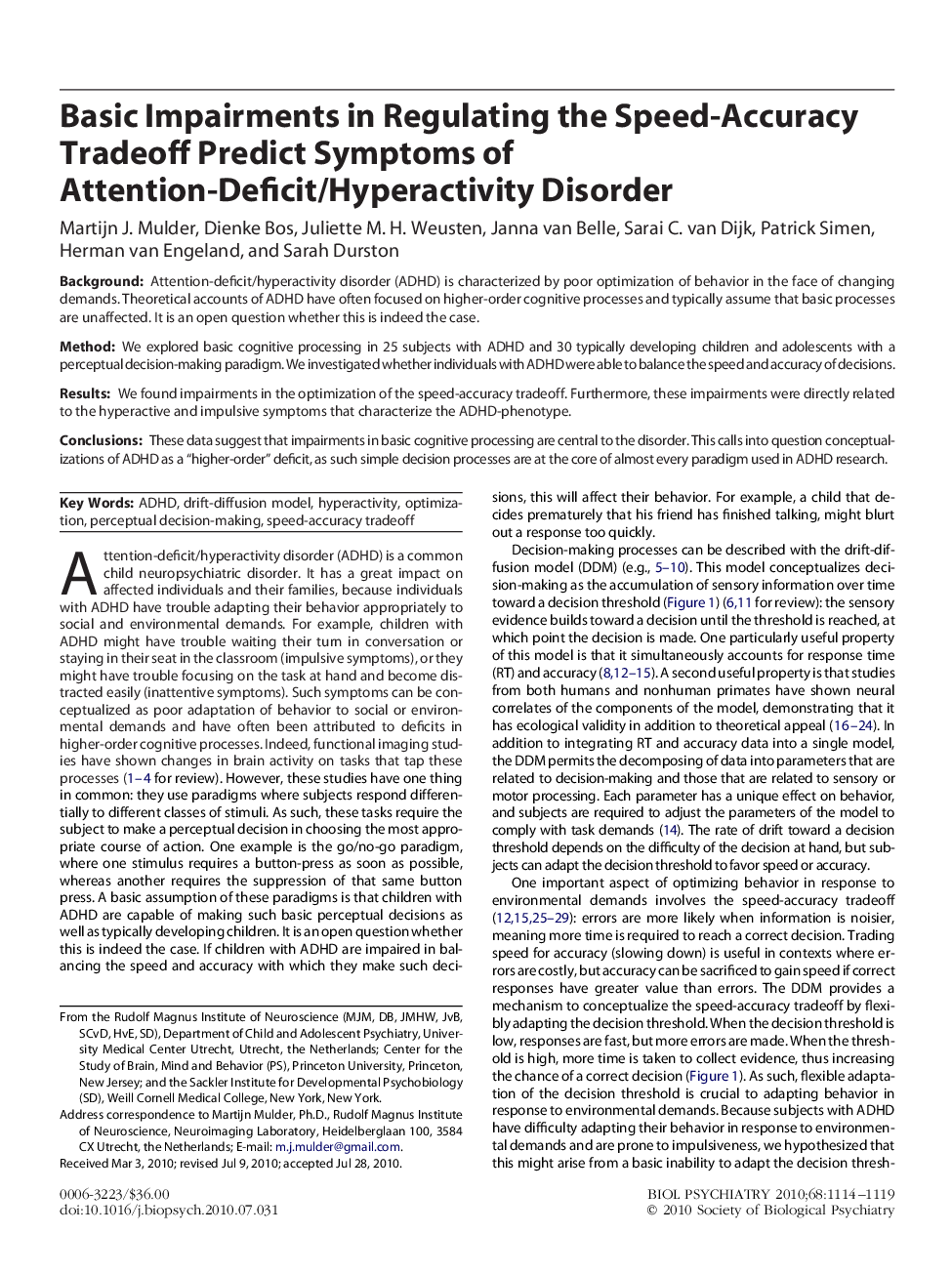| Article ID | Journal | Published Year | Pages | File Type |
|---|---|---|---|---|
| 4178480 | Biological Psychiatry | 2010 | 6 Pages |
BackgroundAttention-deficit/hyperactivity disorder (ADHD) is characterized by poor optimization of behavior in the face of changing demands. Theoretical accounts of ADHD have often focused on higher-order cognitive processes and typically assume that basic processes are unaffected. It is an open question whether this is indeed the case.MethodWe explored basic cognitive processing in 25 subjects with ADHD and 30 typically developing children and adolescents with a perceptual decision-making paradigm. We investigated whether individuals with ADHD were able to balance the speed and accuracy of decisions.ResultsWe found impairments in the optimization of the speed-accuracy tradeoff. Furthermore, these impairments were directly related to the hyperactive and impulsive symptoms that characterize the ADHD-phenotype.ConclusionsThese data suggest that impairments in basic cognitive processing are central to the disorder. This calls into question conceptualizations of ADHD as a “higher-order” deficit, as such simple decision processes are at the core of almost every paradigm used in ADHD research.
